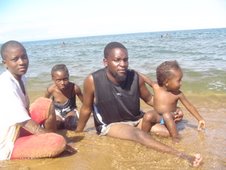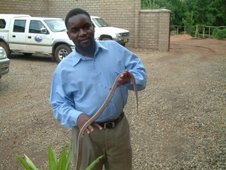
New project launched to improve ecological status of Mt Mulanje
by Hastings Maloya
A project meant to improve the lives of people and protect Mulanje Mountain Forest Reserve has been launched here.
Funded by the United States Agency for International Development (USAID), the $3 million Mount Mulanje MOBI+LISE Project, was initiated Tuesday at Kambenje Full Primary School ground in the area of Senior Chief Nkanda in Mulanje district.
Malawi’s director of forestry Dr. Dennis Kayambazinthu applauded several organizations working on this project, noting that in past the country lost its natural resources because there was a lack of cooperation among interested parties.
“It’s time we worked together. Environmental management and conservation of natural resources should be a responsibility of all especially through working together. I have no doubt that this project will be a success as it has different stakeholders working together,” said Dr. Kayambazinthu.
Also speaking at the launch which had a good turnout, Mulanje district commissioner Jack Ngulube said communities can expect to develop when they have natural resources that were preserved and used wisely.
“Development can not only be infrastructures. We need natural resources like trees and water if people are to fully be involved in the economic development of the country,” said Ngulube who also thanked USAID for its support.
Mulanje Mountain, the tallest in southern African with a rich and unique plant and animal species, was approved as a Global Biosphere Reserve by the UNESCO in 2000. Communities targeted in Mulanje and Phalombe in this project are those in close proximity—about 10 kilometers--to the mountain as they depend on it for their water, food and income.
But uncontrolled demand say on trees for firewood exerts too much pressure on this limited resource. And experts warn that bare land as result of trees being removed wantonly leads to erosion, the lowering of the water table and drought. The whole ecosystem gets affected.
Against that harsh reality, the USAID Mount Mulanje MOBI+LISE Project was initiated to support the people in the communities by introducing them to best practices in resources utilization and management.
The project, which should benefit about 53,995 households from 132 villages around the mountain, is also anticipated to achieve the following outcomes: increased community involvement in protected area management; diversified crop production with good husbandry practices and land resource management; diversified mountain resource utilization opportunities; improved local community development capacity; and, diversified and improved biomass and renewable energy use.
This three-year project has seen the following organizations and institutions working together: Mulanje Mountain Conservation Trust (MMCT), the Wildlife and Environmental Society of Malawi (WESM), Concern Universal (CU) and Mulanje and Phalombe district councils.
Read more: http://www.maravipost.com/index.php?option=com_content&view=article&id=4299:project-to-improve-lives-environment-launches-in-mulanje&catid=52:district&Itemid=122#ixzz15Z8lUgH0











